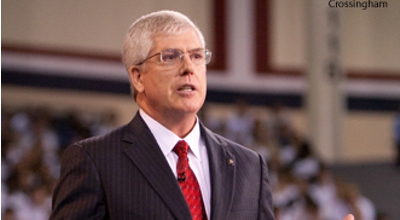Liberty Counsel’s Staver Appointed to Religious and Nonprofit Groups Panel
Mathew D. Staver, founder and chairman of Liberty Counsel and dean of Liberty University School of Law, has been appointed to a panel of legal experts to address key legal issues affecting nonprofit organizations.
At the request of Iowa Senator Charles Grassley, The Commission on Accountability and Policy for Religious Organizations selected a total of 66 panelists in an effort to analyze and present information on major accountability and policy issues affecting religious and nonprofit groups, which were addressed in Grassley’s staff report in January.
“I am honored to serve on this distinguished commission,” Staver says. “The issues we will address present significant concerns to religious and nonprofit organizations.”
The commission is chaired by Michael Batts, CPA, founder of Batts Morrison Wales & Lee, an Orlando, Fla.-based accounting firm dedicated exclusively to serving nonprofit organizations and their affiliates throughout the United States.
The commission was established at Grassley’s request by the Evangelical Council for Financial Accountability (ECFA), a national financial accreditation organization for churches and other religious organizations. The three panels include 23 legal experts, 25 religious sector representatives and 18 nonprofit organization representatives.
Issues before the commission include whether churches should be more accountable to the federal government, if legislation is needed to curb perceived abuses of the clergy housing allowance exclusion, whether the current prohibition against political campaign intervention by churches and other nonprofits should be repealed or modified, whether the rules for determining the reasonableness of nonprofit executive compensation should be tightened, and whether penalties should be expanded for nonprofits and their leaders who engage in prohibited activities.
Each panel will submit a position paper on how to improve or eliminate these issues. Following the submission, each panel will be asked to write a rebuttal and have an opportunity to respond. There will also be at least two meetings in Washington, that appointees will be required to attend. The input gathered from this process will be used in determining how Grassley should respond to the issues being addressed.














































